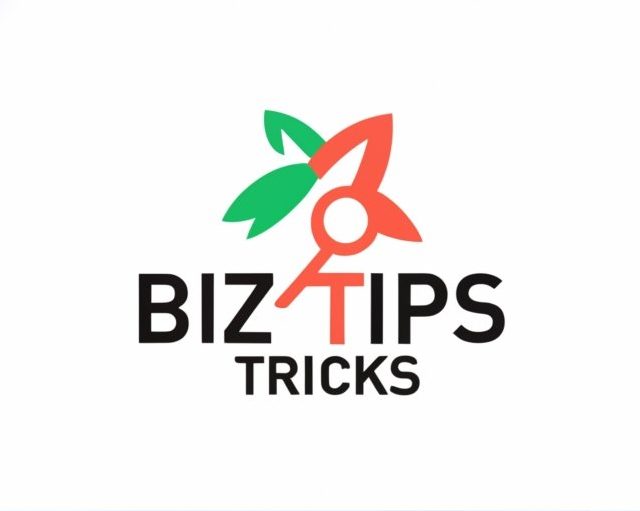The digital marketing field is growing rapidly, and companies are on the lookout for skilled professionals to help them navigate the ever-changing digital landscape. Whether you are a fresh graduate or an experienced professional, preparing for a digital marketing interview is essential.
Here are some Top Digital Marketing Interview Questions with Answers:
1. What is Digital Marketing?
Answer: Digital marketing refers to the use of the internet and online platforms to promote and advertise products or services. It includes a variety of tactics like SEO (Search Engine Optimization), SEM (Search Engine Marketing), social media marketing, content marketing, email marketing, and more. The goal is to reach a targeted audience in a measurable way, increase brand awareness, generate leads, and drive sales.
2. What is the difference between SEO and SEM?
Answer:
- SEO (Search Engine Optimization) is the process of improving a website’s visibility in organic (non-paid) search engine results. It involves keyword optimization, content creation, on-page and off-page optimization, and improving site structure to rank higher in search results.
- SEM (Search Engine Marketing) refers to the paid strategies used to increase a website’s visibility on search engines. It involves using paid advertisements, such as Google Ads, to drive traffic to a website. SEM often includes keyword bidding, ad creation, and monitoring ad performance.
3. What is PPC?
Answer: PPC (Pay-Per-Click) is an internet advertising model where advertisers pay each time their ad is clicked. Google Ads is one of the most popular platforms for PPC campaigns. Advertisers bid on keywords, and their ads are displayed when a user searches for those terms. The cost of each click varies based on the competitiveness of the keyword.
4. What is Content Marketing?
Answer: Content marketing involves creating and distributing valuable, relevant, and consistent content to attract and engage a specific audience. The aim is to drive profitable customer action by delivering content that addresses the needs or problems of the target audience. It includes blog posts, social media content, videos, whitepapers, infographics, and more.
5. What are the key differences between traditional marketing and digital marketing?
Answer:
- Traditional Marketing involves methods such as TV ads, print media, radio, and billboards. It is often one-way communication where marketers push messages to the audience.
- Digital Marketing leverages digital channels like search engines, social media, email, and websites to reach a more targeted audience. It is more interactive, data-driven, and allows for real-time feedback and adjustments.
6. What is a Conversion Rate?
Answer: The conversion rate is the percentage of visitors to a website or landing page who take a desired action, such as making a purchase, filling out a form, or subscribing to a newsletter. It is calculated by dividing the number of conversions by the total number of visitors and multiplying by 100.
Formula:
Conversion Rate = (Conversions / Total Visitors) x 100
7. What is the importance of Social Media in Digital Marketing?
Answer: Social media plays a crucial role in digital marketing by allowing businesses to reach a large, engaged audience. It helps build brand awareness, drive website traffic, generate leads, and interact directly with customers. Social platforms like Facebook, Instagram, LinkedIn, and Twitter allow marketers to run targeted campaigns, track performance, and optimize marketing efforts.
8. What is Google Analytics and why is it important?
Answer: Google Analytics is a free web analytics tool that helps businesses track and analyze website traffic. It provides valuable insights into user behavior, website performance, audience demographics, and conversion data. By using Google Analytics, marketers can make data-driven decisions, identify areas for improvement, and optimize digital marketing campaigns.
9. What are the key components of an effective SEO strategy?
Answer: The key components of an effective SEO strategy include:
- Keyword Research: Identifying relevant keywords that your target audience is searching for.
- On-Page SEO: Optimizing website content, title tags, meta descriptions, headers, and images to align with targeted keywords.
- Off-Page SEO: Building backlinks from reputable websites to improve domain authority.
- Technical SEO: Ensuring the website is technically sound, such as optimizing site speed, mobile responsiveness, and fixing broken links.
- Content Creation: Producing high-quality, informative, and engaging content that addresses user queries.
10. What is an Email Marketing Campaign?
Answer: An email marketing campaign involves sending emails to a list of subscribers or potential customers with the goal of engaging them, providing value, and encouraging them to take specific actions (like making a purchase). Successful email marketing campaigns are well-targeted, personalized, and contain compelling calls to action (CTAs).
11. What is the importance of a call to action (CTA) in digital marketing?
Answer: A CTA is a prompt that encourages users to take a specific action, such as “Buy Now,” “Sign Up,” “Download,” or “Learn More.” It is critical for guiding users towards conversion and ensuring that marketing objectives are achieved. A clear, compelling CTA helps turn visitors into leads or customers by making it easy for them to take the next step in the buying process.
12. What is Retargeting?
Answer: Retargeting is a digital marketing strategy that involves targeting users who have previously visited your website or interacted with your brand but did not take a desired action (such as making a purchase). Retargeting ads remind users of the product or service they showed interest in and encourage them to return and complete the action.
13. What are the different types of digital marketing?
Answer:
- Search Engine Optimization (SEO): Optimizing websites for higher organic rankings.
- Content Marketing: Creating valuable and engaging content.
- Social Media Marketing (SMM): Promoting brands via social media platforms.
- Pay-Per-Click (PPC): Paid ads to drive traffic.
- Email Marketing: Direct communication with customers via email.
- Affiliate Marketing: Partnering with other businesses to promote products.
- Influencer Marketing: Collaborating with influencers to promote products.
14. What is the difference between organic and paid search results?
Answer:
- Organic Search Results are the results that appear in search engine listings due to their relevance to the search query, without paying for placement. These are driven by SEO efforts.
- Paid Search Results are advertisements displayed on search engines like Google. Advertisers pay to have their ads shown when certain keywords are searched. Paid results are typically labeled as ads.
15. What is the role of Mobile Marketing in digital marketing?
Answer: Mobile marketing targets users on their smartphones or tablets. It is important due to the increasing use of mobile devices to browse the internet, make purchases, and engage with brands. Mobile marketing strategies include app-based marketing, SMS marketing, mobile-optimized websites, and mobile ads.
16. What are some key metrics you track in a digital marketing campaign?
Answer:
- Website Traffic: The number of visitors to the website.
- Conversion Rate: Percentage of visitors who take a desired action.
- Click-Through Rate (CTR): Percentage of people who click on an ad or link.
- Cost Per Click (CPC): The cost of each click in a PPC campaign.
- Return on Investment (ROI): The profitability of the campaign.
- Engagement Rate: The level of interaction on social media posts.
17. What is the importance of keyword research in digital marketing?
Answer: Keyword research is essential because it helps identify the words and phrases your target audience is using to find products or services similar to yours. By optimizing your content around these keywords, you can improve your SEO rankings, drive more traffic, and ensure your marketing messages reach the right audience.
18. What is the difference between B2B and B2C digital marketing?
Answer:
- B2B (Business-to-Business) digital marketing focuses on marketing products or services to other businesses. The sales cycle is typically longer, and decision-makers are more focused on ROI and efficiency.
- B2C (Business-to-Consumer) digital marketing targets individual consumers. The buying process is generally quicker, with an emphasis on emotional appeal, convenience, and price.
These questions and answers will help you prepare for a digital marketing interview and provide a solid understanding of the field.
Below is an ultimate list of the top 100 digital marketing interview questions to help you prepare.
General Digital Marketing Questions
- What is digital marketing, and why is it important?
- How does digital marketing differ from traditional marketing?
- What are the main components of digital marketing?
- What are the key advantages of digital marketing?
- Can you name some of the popular tools used in digital marketing?
- How would you define a successful digital marketing campaign?
- What is the role of SEO in digital marketing?
- How do you measure the ROI of a digital marketing campaign?
- Explain the concept of inbound marketing.
- What is outbound marketing, and how does it differ from inbound marketing?
SEO and SEM Questions
- What is SEO, and why is it important?
- Explain the difference between on-page and off-page SEO.
- What are meta tags, and why are they important?
- What is a backlink, and how does it impact SEO?
- Can you explain the concept of keyword research?
- What tools do you use for keyword research?
- How do search engines rank websites?
- What is Google’s PageRank algorithm?
- What is the difference between white-hat, black-hat, and grey-hat SEO?
- What is SEM, and how is it different from SEO?
- How would you create an effective Google Ads campaign?
- What are negative keywords, and why are they important?
- What is Quality Score in Google Ads?
- Explain the concept of Ad Extensions in Google Ads.
- What is A/B testing, and how is it applied in paid advertising?
Content Marketing Questions
- What is content marketing?
- Why is content marketing important in digital marketing?
- How do you create a content strategy?
- What are the key elements of engaging content?
- How do you ensure content is SEO-friendly?
- What is evergreen content?
- Can you explain content repurposing?
- What tools do you use for content marketing?
- What is the role of storytelling in content marketing?
- How do you measure the success of a content marketing campaign?
Social Media Marketing Questions
- What is social media marketing?
- Why is social media important for businesses?
- How do you choose the right social media platform for a campaign?
- What are the best practices for creating a social media strategy?
- How do you measure social media ROI?
- What are some tools for social media analytics?
- What is the role of hashtags in social media marketing?
- How do you handle negative comments on social media?
- What is the difference between organic and paid social media campaigns?
- How do you run a successful Facebook Ads campaign?
- What is influencer marketing, and how does it work?
- How do you track the performance of an influencer campaign?
- What are some strategies for growing a brand’s social media presence?
- What is social listening, and why is it important?
- Can you explain the concept of UGC (User-Generated Content)?
Email Marketing Questions
- What is email marketing?
- Why is email marketing still relevant today?
- What are the key elements of an effective email marketing campaign?
- What is email segmentation, and why is it important?
- How do you measure the success of an email marketing campaign?
- What is a good email open rate?
- What tools do you use for email marketing?
- What are some ways to reduce email bounce rates?
- What is the role of personalization in email marketing?
- How do you comply with email marketing regulations like GDPR?
Analytics and Metrics Questions
- What is web analytics?
- Why is data analysis important in digital marketing?
- What are the key metrics to track in a digital marketing campaign?
- What is bounce rate, and how can it be improved?
- How do you measure conversion rates?
- What is the difference between sessions and pageviews in Google Analytics?
- What is a KPI, and how do you define it for a campaign?
- What tools do you use for web analytics?
- How do you create a marketing dashboard?
- What is cohort analysis?
E-commerce Marketing Questions
- What is e-commerce marketing?
- How do you optimize an e-commerce website for SEO?
- What are some effective strategies for increasing e-commerce sales?
- What is cart abandonment, and how do you reduce it?
- What role do product reviews play in e-commerce marketing?
- How do you create an effective email marketing campaign for e-commerce?
- What is affiliate marketing, and how does it work in e-commerce?
- How do you track the performance of an e-commerce campaign?
- What are some tools for e-commerce analytics?
- How do you manage product feeds for Google Shopping Ads?
Mobile Marketing Questions
- What is mobile marketing?
- How is mobile marketing different from desktop marketing?
- What are the best practices for mobile-friendly website design?
- How do you optimize a campaign for mobile devices?
- What is app store optimization (ASO)?
- What are some effective strategies for mobile app marketing?
- How do you track the performance of mobile marketing campaigns?
- What is geofencing in mobile marketing?
- What are push notifications, and how are they used in mobile marketing?
- What is the role of SMS marketing in digital campaigns?
Emerging Trends and Technologies Questions
- What is the role of AI in digital marketing?
- How do chatbots enhance the customer experience?
- What is programmatic advertising?
- Can you explain voice search optimization?
- What is the impact of AR and VR on digital marketing?
- How does blockchain technology impact digital marketing?
- What is predictive analytics, and how is it used in marketing?
- How do you see the future of digital marketing evolving?
- What is the role of video marketing in today’s landscape?
- What is the significance of personalization in digital marketing?
Conclusion
Preparing for a digital marketing interview requires a strong understanding of the fundamentals, tools, and emerging trends. By reviewing and practicing these 100 questions, you will be well-equipped to showcase your knowledge and skills, making you a strong candidate for your next opportunity. Good luck!





